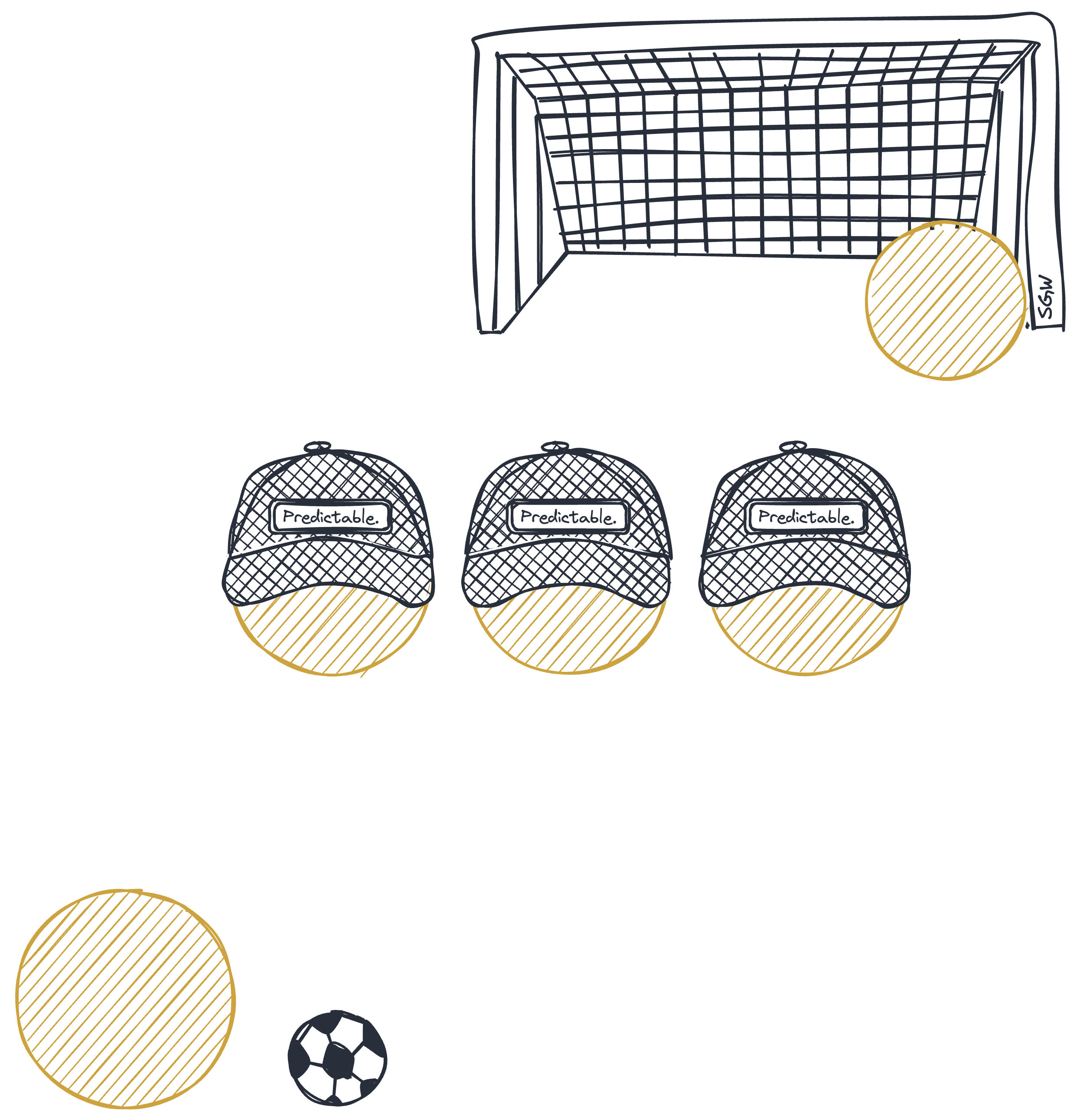Reliably Predictable
If you’ve been wondering what the u13 girls soccer team has been up to, well, they’ve been playing well and were recently promoted to the top division in their league. What’s been interesting about playing against that level of competition is that whereas in the past we might get away with a mistake or two, mistakes now are ruthlessly punished by the opposition. To wit, they were playing a game in which they were dominating possession until one of our center backs, in an attempt to switch the field, accidentally kicked the ball off the back of our other center back. The opposing team’s striker was on that loose ball in a flash and scored on a breakaway against the run of play. Our girls lost 0-1.
While that was an unlucky and unfortunate error of commission, more insidious are the errors of omission that we coaches are trying to stamp out. One of those that’s been popping up is what happens after our team commits a foul within shooting distance of our goal. When that happens the other team gets a direct free kick and will likely take a shot. If you know soccer, then you know that to defend against that, the goalkeeper will typically set up a wall of players to block one side of the goal while she stands on the other. That’s because, in this situation without a wall, there would be too much space for the goalkeeper to cover given how hard some of these kids can kick the ball.
And that’s the rub: the ball is being kicked hard.
Because what we’ve seen happen is that after the goalkeeper sets up the wall, if the ball gets kicked at the wall, some people in the wall move because they don’t want to get hit by the ball. This, of course, defeats the entire purpose of setting up the wall and ends up leading to worse outcomes than if the goalkeeper had set up no wall at all. After all, there are few things more unsettling than a false sense of security.
So that’s led to us talking a lot with the girls about the hierarchy of doing and not doing. Namely, that the best approach is to do what you said you are going to do when you said you would do it. Second best, though sometimes frustrating to others, is not doing what you said you were not going to do. Worse than that, even if it’s well meaning, is doing what you said you were not going to do (this is occasionally why our cats get two breakfasts). But worst of all is not doing what you said you were going to do (like ducking out of a wall).
I wrote around this time last year that one of our aims in working with our businesses is to help them become more predictable. That’s because certainty, if you can achieve it, is incredibly valuable. And while predictable people sometimes get a bad rap, if you are highly reliable, even if you’re not the smartest or most athletic or most innovative, you will become an indispensable member of any team or organization. If you’re not, even if you are those other things, chances are you won’t become the contributor you aspire to be. And you can’t fake it either because you will be found out.
So if you can’t or won’t do something, say so. That’s reliably predictable and reliably predictable is indispensable.
– Tim


